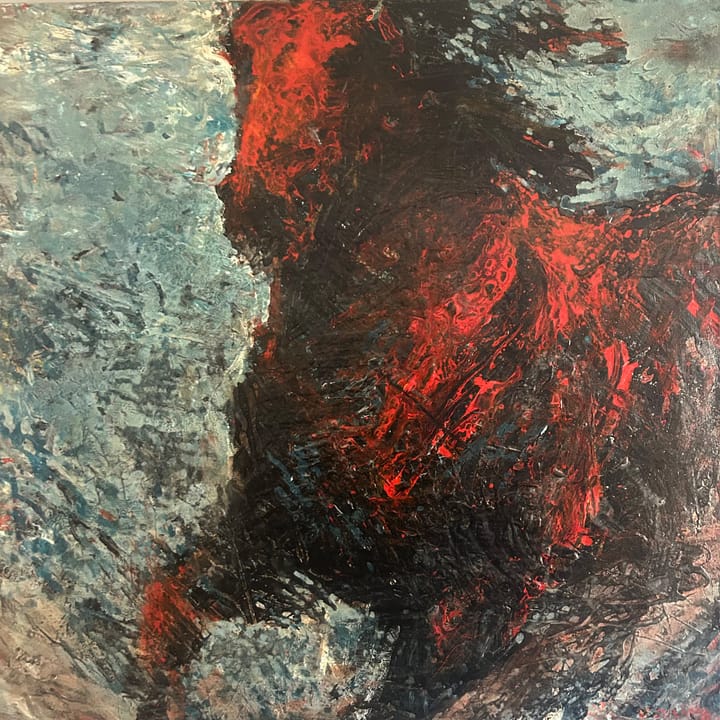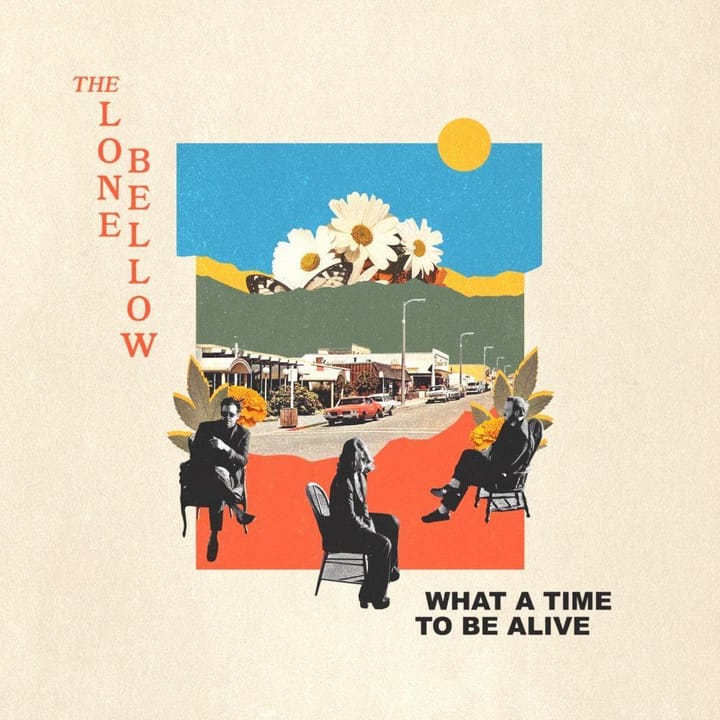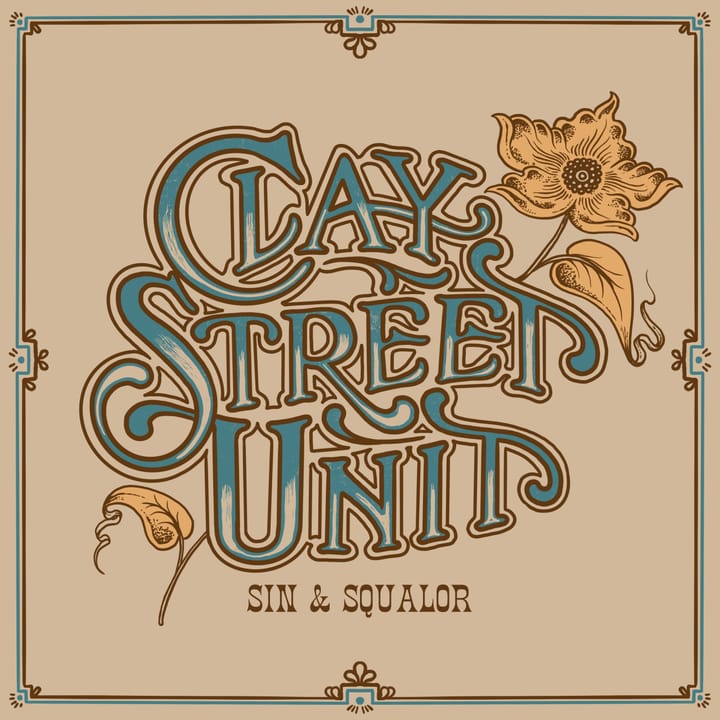He has a nice voice, Lyle Lovett does. This is both obvious and taken for granted: His is a friendly, intimate, familiar instrument, a firm, dry handshake that chooses rarely to reveal its full strength.
Well, of course. He's traipsed on the edge of various kinds of stardom for two decades, and it's not all about his hair and his ex-girlfriends. When he's right -- and he's right, just now -- Lyle Lovett is a formidably elegant and deceptively subtle songwriter.
But, still, he has a nice voice. It is kind and mischievous and suggests a twinkle in his eyes and wisdom in his heart. It is a storyteller's tool in the time-honored Texas tradition of Ernest Tubb, Willie Nelson, and Townes Van Zandt. And, inevitably, Roger Miller, except that Lovett tends to luxuriate patiently amid all those syllables instead of spilling them everywhere with delight.
Because we already like him we will more chuckle than squirm at the title of Lovett's eleventh album, knowing that it has to do with the size and name of his band, not his mojo. This is what makes him a particularly elusive artist, for he hides better than most, and in plain sight.
Humorists are like that, and Lovett's Large Band has allowed him not only to embrace various musical possibilities and to travel in the company of players he enjoys, but to shield his more personal songs -- and his less-creative songwriting periods -- behind an exuberant blast of horns and backup singers.
It is also true that Lovett will turn 50 on November 1, that he has been hospitalized by a large farm animal, and that his friend Guy Clark's opening and closing cameos on "South Texas Girl" sound unbearably, almost unexpectedly fragile.
From this point one may see endings. They are, with luck, a long way off, but not so far that they can be ignored. And the tools one has labored so long to acquire, are they up to the task or, even, still of interest?
Rich ground for a brave songwriter.
Lovett does not flinch, and that gets harder as one grows older. Nor has he lost his sense of humor, though now it is used to break the mood more than to set it. He does, still, obfuscate.
It's Not Big It's Large opens with a fleshy western swing read of Lester Young's "Twinkle Toe", and Lovett sings not a word. It's an overture of kinds -- a deception, a misdirection (and unnecessary; or, perhaps, an odd farewell) -- and shows off the virtuosity of his longtime collaborators, including bassist Viktor Krauss, keyboardist Matt Rollings, guitarists Mitch Watkins and Dean Parks, fiddlers Stuart Duncan and Gene Elders, drummer Russ Kunkel, steel guitarist Paul Franklin, cellist John Hagen, and percussionist James Gilmer. (The ubiquitous Sam Bush brings his mandolin in a track later.)
The album's real beginning is announced by the slow, unexpectedly somber, and thoroughly private guitar chords which open the gospel "I Will Rise Up/Ain't No More Cane", which combines a Lovett original with a traditional tune. Though surrounded by horns and harmony vocalists, his voice stays at the center of the song, and he is not kidding around. "And I will rise up/Though I be a dead man," he sings on the swelling chorus, thoroughly committed.
He has grappled with mortality before, including his father's passing on "You Were Always There", hidden among the playful tracks on 2003's My Baby Don't Tolerate. And perhaps "I Will Rise Up", with its images of death and enslavement down by the river, is empowered as much by Katrina as it is by a date on Lovett's private calendar. Perhaps.
Regardless, it is a muscular, gorgeous song, one of those occasions for which the full power of his Large Band is truly necessary. It is not a bit funny. And it is also a statement of purpose. Of new purpose, perhaps.
Lovett has always seemed a cocky guy in his songs, likable enough (discounting the stalking murderer of "L.A. County", say; and I'm not sure I'd want him chatting up my gal) because he has that voice and a gift for self-deprecation. So it is a trifle bracing to hear him sing, "I've had an excellent time so far/There's only one thing that I fear/I've been up so long on this lucky star/It could be all downhill from here."
Well, it'd be bracing if he weren't having such a good time singing "All Downhill From Here", if the melody weren't so darn jaunty, if he didn't take such relish with the second half of the couplet, "I've been good and I've been bad/Mostly I've been bad." And if his other asides, throughout, weren't such precisely polished understatements: "I've got a beautiful girlfriend/Sometimes we stay in."
If "All Downhill From Here" is a successful singer's contemplation of the worst that might happen, "Don't Cry A Tear" is Lovett's magnificent response to the greater issue at play. "Shout if you can speak," he sings, almost naked at the microphone despite the spare accompaniment that gathers slowly behind him. "Sing when you mention my name/Don't cry a tear for me."
It is a deceptively simple song, elegant (that word, again) and one of his best, and we will all hear it at funerals for our friends, and hope we earn its spirit for our own. But listen to his voice, listen to the man sing, for his is a rich and powerful voice, more agile than we notice, more passionate in its restraint than we typically give credit for, with rather more than a raconteur's range.
After, within the Guy Clark frame, "South Texas Girl" is a first-rate memory piece, a slightly mournful short story, ever so closely observed. They all are, really. Maybe they always have been, but this set feels tighter, more precise, harder worked, harder won.
And then the mood begins to shift, slightly. "This Traveling Around" begins as a familiar musician's lament -- with another of those memorable hooks -- then turns one of Lovett's familiar corners toward the end: "And I'd change my ways/If I knew how else to be." Regret. Hmmm.
"Up In Indiana" is an uptempo love story beautifully drawn, a dance number, perhaps, until one figures out the protagonist is behind bars. "The Alley Song", weakest here, reprises some of the sensibility behind "I Will Rise Up" in that it, too, is partially about the downtrodden. But again, in the last stanza, there are these words of knowing: "And when you know you're not the best/You hope no one can tell."
And then an odd things happens. The cocky fellow who could walk into any room and charm every lady? The guy who can get away with an album title like It's Not Big It's Large and a wink and a nod? He feels his charm fading, his girl gone with a younger man in "No Big Deal", and he is man enough to understand the balance of it, and to write about the hurt.
A poor place to end, that, so the near nonsense of "Make It Happy" finishes and flashes with his usual buoyancy. Two acoustic codas follow: "Ain't No More Cane", now standing slowly alone, and a flashy bluegrass take on "Up In Indiana". Both become different songs, well worth hearing twice. Especially when such a nice voice is singing them.




Comments ()